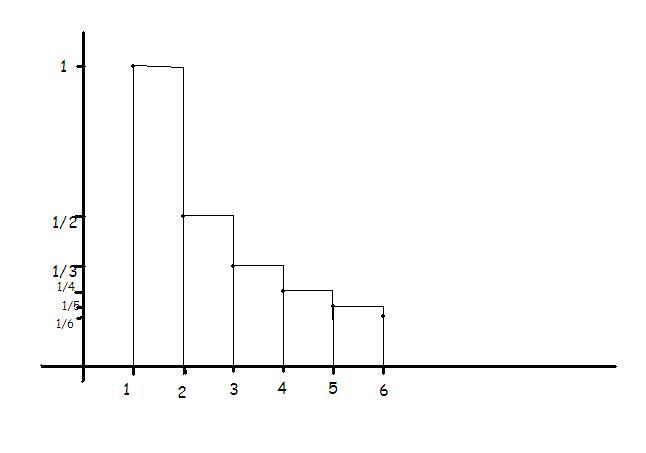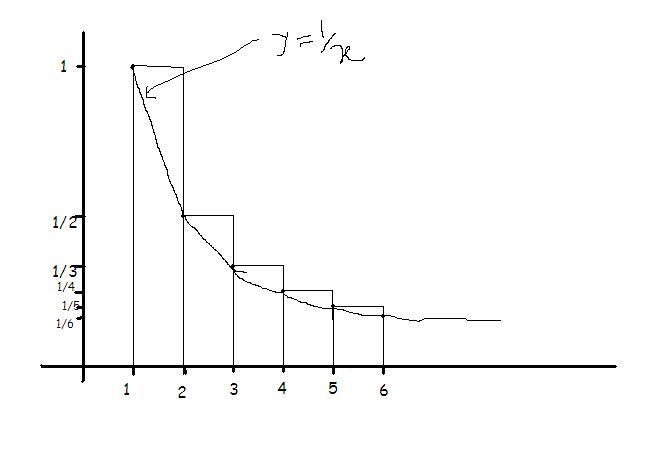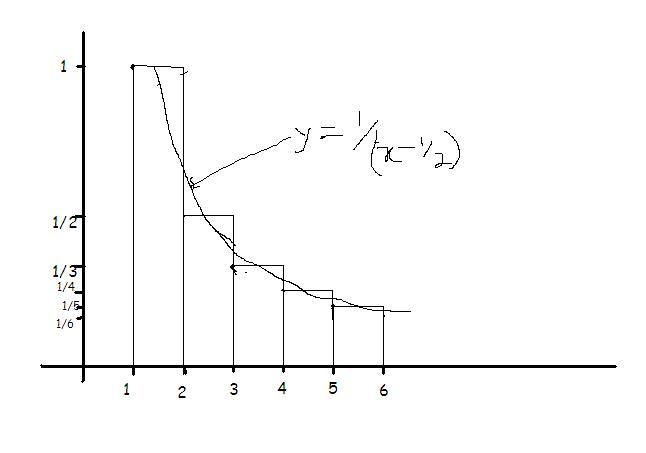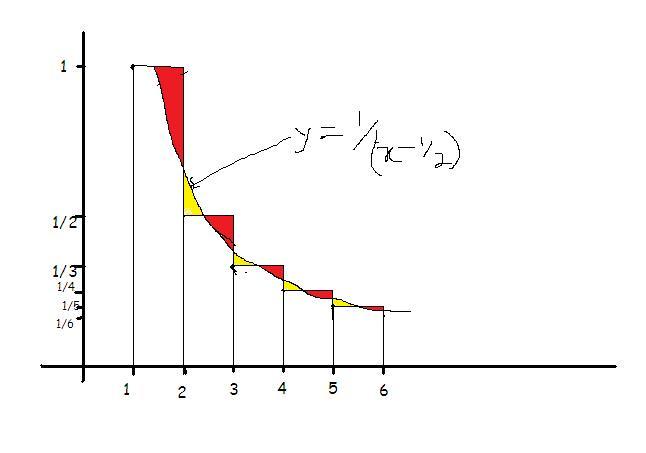
(integral does not converge)
What i thought is:
consider
1-1/2+1/3-1/4+1/5....
it is equivalent to
1+(1/2 - (1/2x2))+1/3+(1/4 - (1/4x2))+1/5..
same as
1+1/2+1/3+1/4+1/5..-2(1/2+1/4..)
I remember Nishant Bhaiya's face when he was discussing this problem....well he hates this type of abstract problems but i love this one....
find the value of:\sum_{1}^{\propto }{(1/i)}
well i warn sum of H.P. has no formula.....ise karne ka sirf gadha ghora hi gadha ghora tarika hai...:):P
so wat i have done is plotted the points only...
now let us see how to find the sum..
wat men no one trying this out???
well i may simplify by telling
\sum_{1}^{\propto }{1/i}=1/1+1/2+1/3+1/4+...........\propto
actually marking the points on x axis the graph beautifully looks like this...

so what basically we see is that the rectangles drawn have base equal to 1 unit size..
thus area of the rectangles is numerically equal to their length...thus the sum is equal to 1+1/2+1/3+....=sum of lengths of the rectangles=sum the area of the rectangles

so making a good approximation...the area included by the rectangles is approximately equal to or more precisely a bit more than the area under the graph of y=1/x
now if we want to get a more accurate result, what we are supposed to do is shift the graph of y=1/x towards the right by half unit distance...
so graph looks like this...

this is because the excluded areas marked in red are somewhat nullified by including the extra areas marked in yellow...


(integral does not converge)
What i thought is:
consider
1-1/2+1/3-1/4+1/5....
it is equivalent to
1+(1/2 - (1/2x2))+1/3+(1/4 - (1/4x2))+1/5..
same as
1+1/2+1/3+1/4+1/5..-2(1/2+1/4..)
i don't believe on your donkey-horse-pig graph method
my solution is
1+1/2+1/3+1/4+1/5+1/6+.........∞
1+1/2 IS GREATER THAN 1/2
1/3+1/4 IS GREATER THAN 1/2
1/5+1/6+1/7+1/8 IS GREATER THAN 1/2
1/9+1/10+.....1/16 IS GREATER THAN 1/2
SUM OF NEXT 16 TERMS IS GREATER THAN 1/2
SUM OF NEXT 32 TERMS IS GREATER THAN 1/2
SUM OF NEXT 64 TERMS IS GREATER THAN 1/2
SUM OF NEXT 128 TERMS IS GREATER THAN 1/2
THIS SERIES CONTINUE UPTO ∞
SO SUM MUST BE INFINITE
so you want to tell that the amswer that 1+1/2+1/4+1/8+.....infinite=2 is not correct..instead it must be infinite???
no,it is
1+1/2+1/3+1/4+1/5....∞ > 1/2+1/2+1/2+1/2......∞
(the number of terms on R.H.S is less than that of L.H.S)